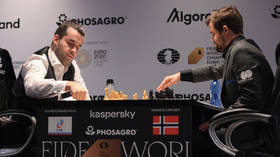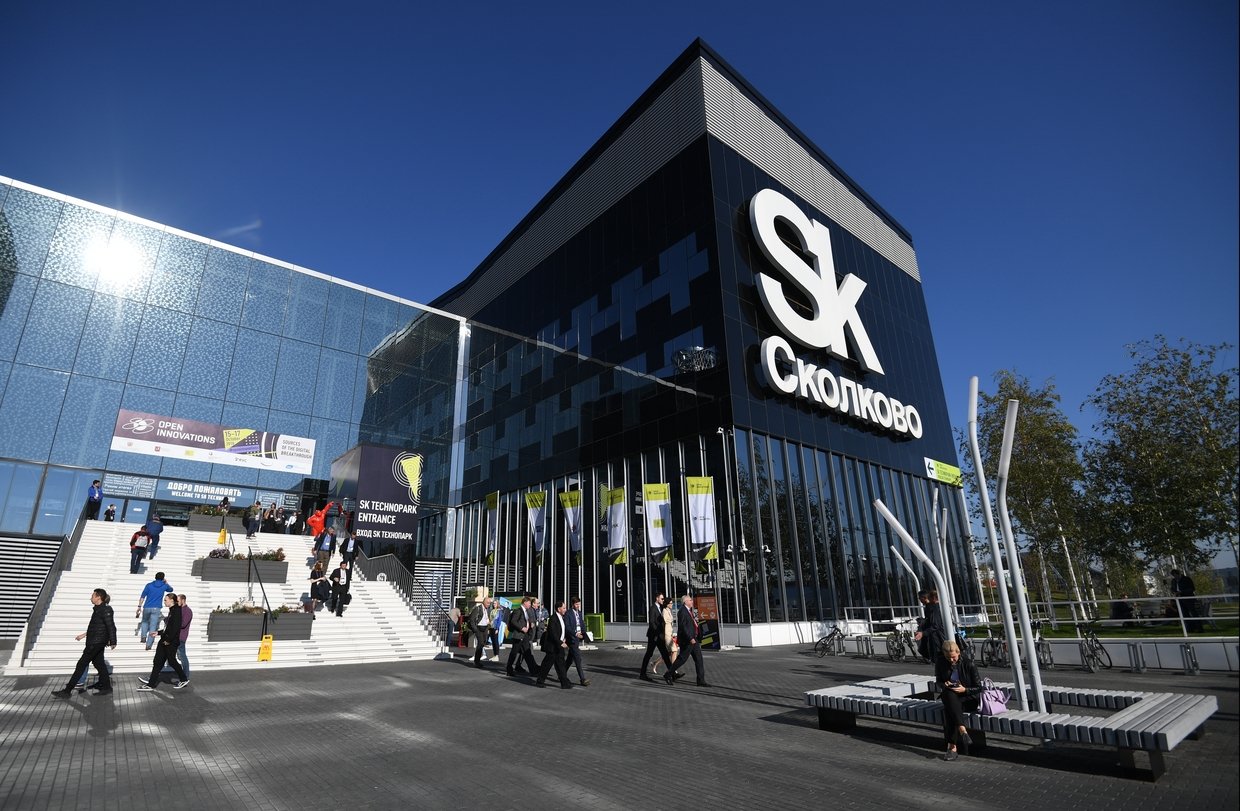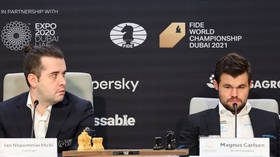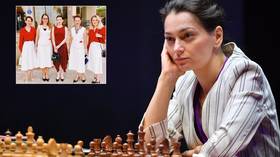Can a Russian supercomputer help a national chess hero to win the world title?

Russian chess world championship hopeful Ian Nepomniachtchi is up against it when facing the dominant Magnus Carlsen in Dubai. But could a supercomputer help him to realize his potential?
Known fondly as 'Nepo', Nepomniachtchi has finally taken his sport seriously following huge expectations made of him on the cusp of adolescence.
Breaking into the Top 10 in 2019, he enters the World Chess Championship match against Carlsen this week in the top five but as an underdog.
Yet while the Norwegian, looking to cement his status as perhaps the greatest player of all time, is heavily favored as the four-time reigning champion, Nepo has a secret weapon up his sleeve for the 14-game event which kicks off on Friday afternoon and boasts prize money exceeding $2 million.
Earning the right to face Carlsen when winning a competition among world governing body Fide candidates in Ekaterinburg, he listed the Zhores supercomputer as one of the main ingredients behind his success.
Nepomniachtchi claims that the machine, based in Moscow's Skolkovo Institute of Science and Technology, which was founded in 2011 in partnership with Massachusetts Institute of Technology in the US, has helped his team evaluate positions in the tens of millions per second, and "can't harm my chances" in preparation for Carlsen.

"This particular supercomputer, because it is a huge data center which can be used for scientific research, is hopefully more effective than others," he revealed to The Guardian on the eve of attempting to reinstate Russian dominance on the World Championships, which previously ran from 1946 to 2006.
"You’re more sure that your analysis is good when you see 500 million node positions than, say, 100 million," added Nepo.
"In general all the top players have access to something similar. And it’s the chess engines, such as Stockfish and Leela Chess Zero, which are the main tool in helping us prepare. Everyone has those."
Even Carlsen himself has named Google's DeepMind neural network AlphaZero, as one of his heroes in chess, though nobody knows exactly how the 30-year-old uses computers in his profession.
The Skolkovo Foundation is chaired by Arkady Dvorkovich, who is also the president of world chess body Fide which has organized Nepo's match versus Carlsen.
But the use of computers in chess, even if not capable of calculating as fast as Zhores, is well-documented, as the Russian implied.
In the late 80s, they finally became capable of beating world-class chess players, although the biggest breakthrough came with Deep Blue's 1997 win over Garry Kasparov, after Nepo's compatriot beat the IBM machine the year before, a defining moment in the history of the sport.
Scene from the fateful game six in the 1997 Kasparov versus Deep Blue match (Reuters Archive). pic.twitter.com/K3Jkb6WbyK
— Olimpiu G. Urcan (@olimpiuurcan) March 11, 2021
I'm still not over this image of Kasparov, taken immediately after the 1997 rematch with deep Blue: pic.twitter.com/MN0ufNC8J8
— Fredrik Knudsen (@FredInTheKnud) December 7, 2020
The last human-computer match was in 2006 when Deep Fritz overcame then-world champion Vladimir Kramnik in Bonn and won 4-2.
And if Zhores, noted for potentially being able to see much deeper and evaluate positions better than its predecessors, proves to play a big part in the 2021 World Championship match, perhaps it could face the winner of Carlsen versus Nepomniachtchi.














